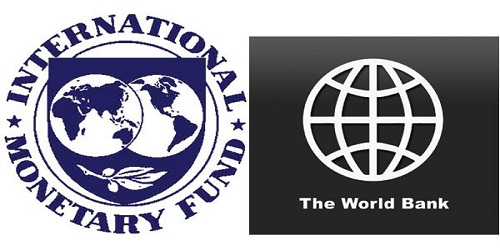On December 21, 2018, International Monetary Fund (IMF) and World Bank (WB) released the Financial System Stability Assessment (FSSA) and Financial Sector Assessment (FSA) respectively. Second comprehensive Financial Sector Assessment Program (FSAP) for India too has been conducted during 2017.
About FSAP:
FSAP is a joint program undertaken by International Monetary Fund (IMF) and the World Bank (WB) to comprehensively assess and conduct in-depth analysis of a country’s financial sector.
- WB is only involved in conducting FSAP of developing countries and region.
- FSAP has been conducted since September 2010 in 29 countries (including India) at interval of every five years.
- Last FSAP for India was conducted in 2011-12.
Highlights of Second Comprehensive FSAP for India:
The latest FSAP of India has acknowledged that India has recorded strong growth in past few years in economic activity and financial assets.

- During these years, size of India’s financial system has remained broadly stable in terms of Gross Domestic Product (GDP).
- Growth in India’s financial industry has been supported by increased diversification, technology-driven inclusion and commercial orientation.
- FSAP has lauded Indian Government’s efforts for tackling Non-Performing Assets (NPAs), initiating recapitalisation plan for public sector banks, passing of Insolvency and Bankruptcy Code (IBC) and setting up of Insolvency and Bankruptcy Board of India (IBBI).
- Besides, FSAP report has also praised financial inclusion through Jan Dhan Yojana, promoting digitization and introduction of AADHAR.
- FSAP has acknowledged Reserve Bank of India (RBI’s) initiatives of introduction of risk-based supervision in 2013 through Supervisory Program for Assessment of Risk and Capital (SPARC), Asset Quality Review (AQR) and the tightening regulations in 2015 for timely identification of distressed assets.
- FSAP has positively reviewed setting up of new Enforcement Department of RBI and revising and invoking Prompt Corrective Action (PCA) for banks.
FSAP observations about India’s Banking, Securities Markets and Insurance Sector:
- Under FSAP, IMF administered a stress test on 15 largest Indian banks, including 12 public sector banks (PSBs).
- The FSSA and FSA has outlined that India’s largest banks appear to be sufficiently capitalized and profitable to withstand any economic uncertainties in future.
- However, some PSBs are vulnerable and may require capital infusion.
- Securities Market: FSAP report acknowledges that Securities and Exchange Board of India (SEBI) has made significant regulatory changes in line with IOSCO (International Organization of Securities Commissions) assessment published in 2013.
- Insurance Sector: In context of insurance solvency framework, India’s insurance regulator, IRDAI is already taking steps to implement risk based capital (RBC) system and is in the process of formulating a “Risk Based Supervisory Framework” for monitoring potential risks in the insurance sector.
Quick Facts about International Monetary Fund (IMF) and World Bank (WB):
| International Monetary Fund (IMF) | World Bank (WB) | |
| Formed in | 1945 | 1945 |
| Headquarters | Washington D.C., US | Washington D.C., US |
| Current Head | Christine Lagarde (Managing Director) | Jim Yong Kim (President) |




